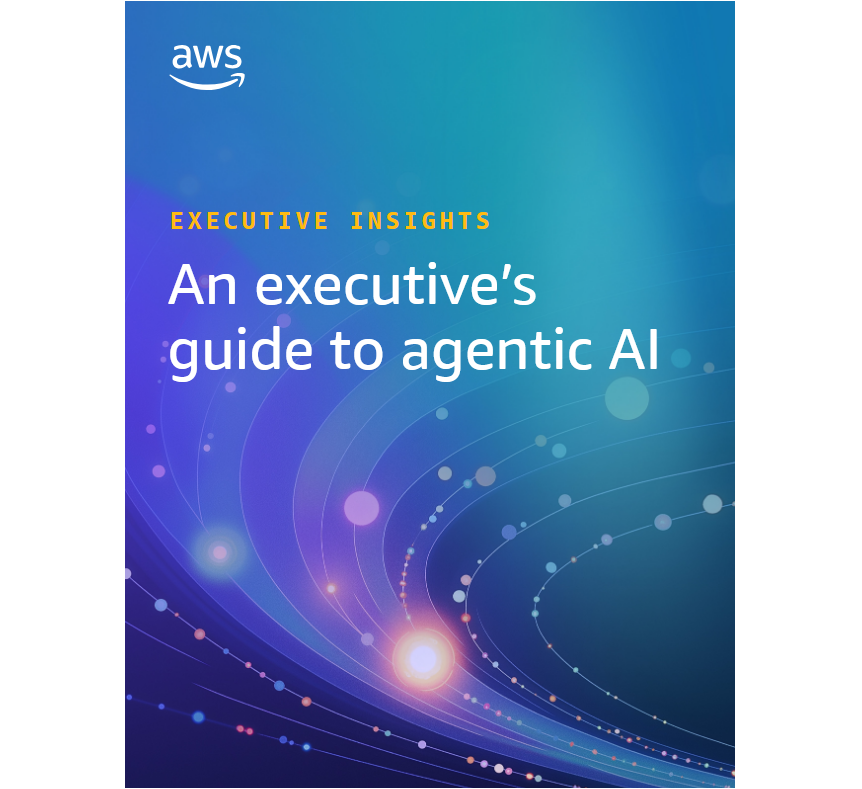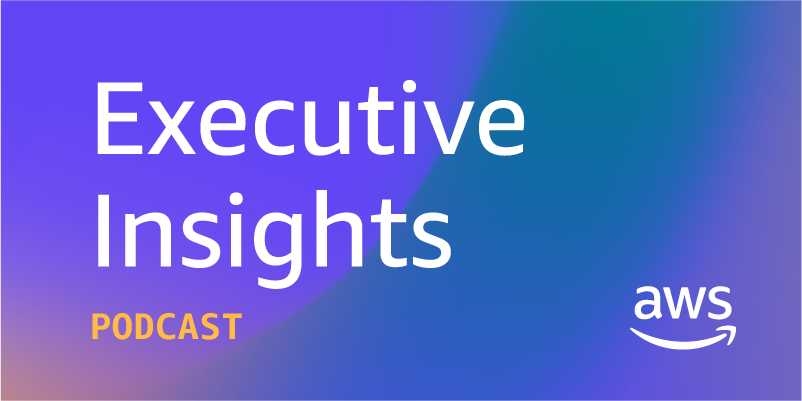- AWS›
- Executive Insights
Executive Insights
Perspectives from leaders at the intersection of business and technology
Actionable intelligence and executive thought leadership
AWS Executive Insights is where decision-makers come to gain leadership insights and actionable advice to drive innovation. Explore our executive thought leadership content to learn how AWS cloud computing and AI innovation can propel your business into the future.
And don't miss our Executive Insights podcast, which taps into the knowledge and first-hand experience of industry leaders to provide authentic answers to your most pressing questions.
The next evolution in AI: Agentic AI
Agentic AI represents the next evolution in artificial intelligence, moving beyond reactive assistants to autonomous agents capable of executing complex tasks independently. This executive guide explores how agentic AI is transforming business, from dramatically accelerating software development to streamlining drug discovery. It also provides a practical roadmap for business leaders to realize greater value from agentic AI investments - from building the right technical foundations and organizational structures, to implementing governance frameworks and preparing workforces for human-AI collaboration. As we enter this new era, success will come not to those with the grandest plans, but to organizations that start smart, learn fast, and thoughtfully scale agentic AI use cases.

Agentic AI in Action: Turning Data into Outcomes
Explore the transformative power of agentic AI with AWS Executives in Residence Tom Soderstrom and Miriam McLemore as they reveal how organizations can turn overwhelming data volume into actionable business outcomes. Drawing from their extensive experience leading digital transformation at NASA's Jet Propulsion Laboratory and Coca-Cola respectively, our experts share practical insights on overcoming data paralysis, breaking down organizational silos, and implementing a culture of experimentation.
How to Build an Enterprise Data Foundation That Supports Innovation and Governance
We catch up with Mai-Lan Tomsen Bukovec, VP of Technology at AWS, as she reveals three transformative approaches to enterprise data management: aggregate, curate, and extend. Drawing from her extensive experience leading AWS data services, Mai-Lan shares how organizations can build flexible, scalable data foundations that enable both innovation and governance. Join Mai-Lan as she discusses the intricacies of data infrastructure modernization with AWS Executive in Residence Tom Soderstrom. Together they explore how modern data infrastructure can accommodate rapid technological changes while maintaining security and compliance.
AI Agents: The New Frontier of Enterprise Security
Explore the future of enterprise security with Abnormal AI's CIO Mike Britton, as he reveals how next-generation security operations are evolving to combat machine-speed threats. As both a security leader and AI innovator, Britton shares his advice for implementing effective agentic AI governance while maintaining operational agility. He emphasizes that success in the AI era isn't about replacing humans, but about empowering security teams to work alongside AI systems effectively. From managing agentic AI risks to building AI-ready security operations, this episode offers essential guidance for security leaders navigating the intersection of AI innovation and enterprise protection.
And also...
AWS Executive Insights podcast
Hear from business leaders across industries about their personal insights on innovating for growth, building resiliency, and shaping the future of their organizations.
